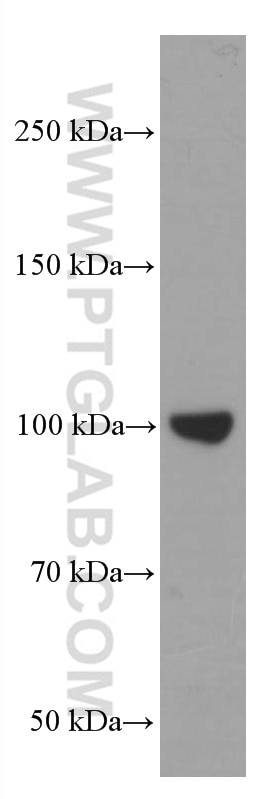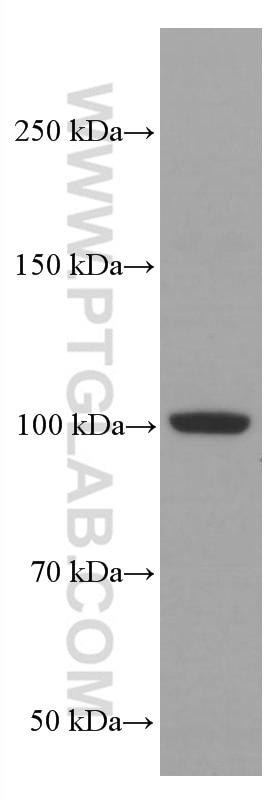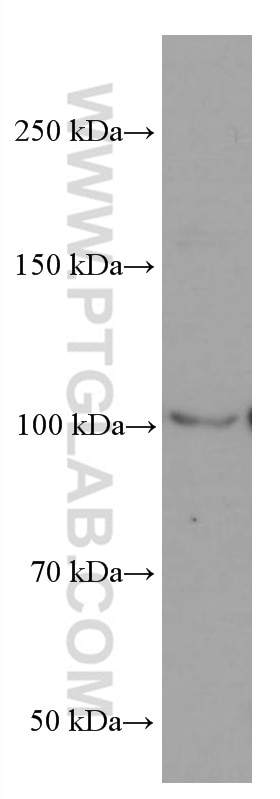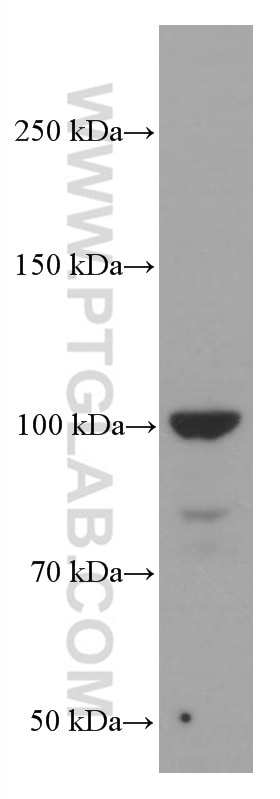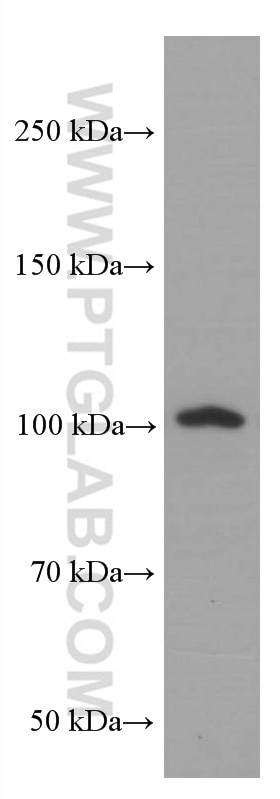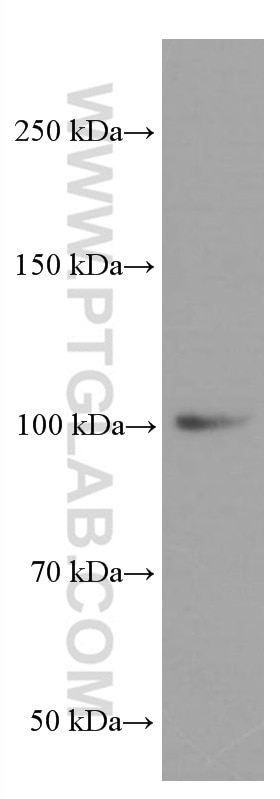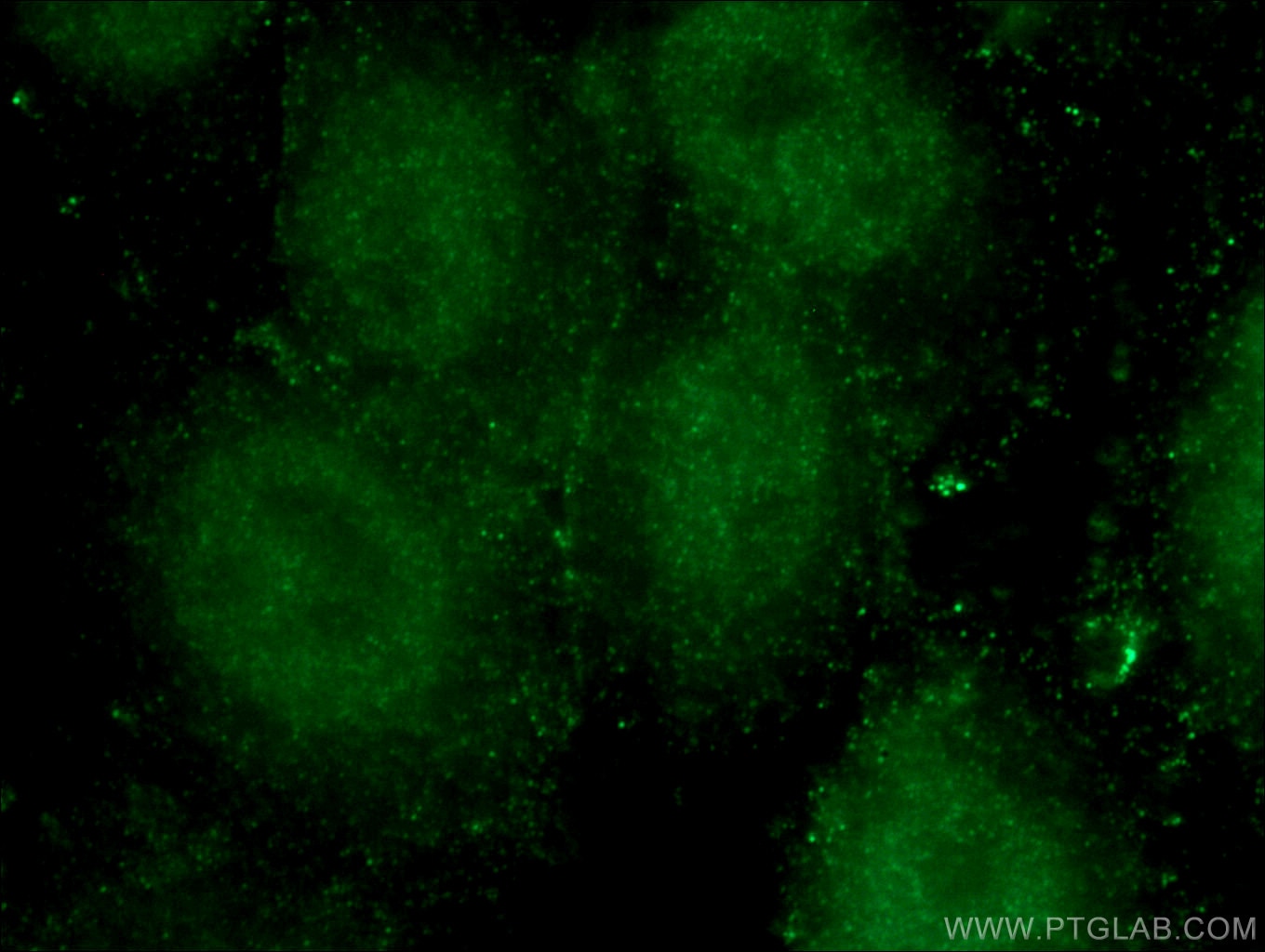LIG4 Monoclonal antibody
LIG4 Monoclonal Antibody for IF, WB,ELISA
Host / Isotype
Mouse / IgG2a
Reactivity
Human
Applications
WB, IF,ELISA
Conjugate
Unconjugated
CloneNo.
1H6C11
Cat no : 66705-1-Ig
Synonyms
Validation Data Gallery
Tested Applications
| Positive WB detected in | PC-3 cells, HeLa cells, HepG2 cells, Jurkat cells, Ramos cells, human testis tissue |
| Positive IF detected in | HepG2 cells |
Recommended dilution
| Application | Dilution |
|---|---|
| Western Blot (WB) | WB : 1:1000-1:4000 |
| Immunofluorescence (IF) | IF : 1:50-1:500 |
| Sample-dependent, check data in validation data gallery | |
Product Information
66705-1-Ig targets LIG4 in WB, IF,ELISA applications and shows reactivity with Human samples.
| Tested Reactivity | Human |
| Host / Isotype | Mouse / IgG2a |
| Class | Monoclonal |
| Type | Antibody |
| Immunogen | LIG4 fusion protein Ag3385 相同性解析による交差性が予測される生物種 |
| Full Name | ligase IV, DNA, ATP-dependent |
| Calculated molecular weight | 911 aa, 104 kDa |
| Observed molecular weight | 100-104 kDa |
| GenBank accession number | BC037491 |
| Gene symbol | LIG4 |
| Gene ID (NCBI) | 3981 |
| RRID | AB_2882057 |
| Conjugate | Unconjugated |
| Form | Liquid |
| Purification Method | Protein G purification |
| Storage Buffer | PBS with 0.02% sodium azide and 50% glycerol pH 7.3. |
| Storage Conditions | Store at -20°C. Stable for one year after shipment. Aliquoting is unnecessary for -20oC storage. |
Background Information
Two major pathways, homologous recombination (HR) and nonhomologous end joining (NHEJ), counteract one of themost toxic lesions, the DSB. The core protein complex mediating NHEJ in mammals includes DNA ligase IV (Lig4). Lig4 belongs to an ATP-dependent DNA ligase family, and joins single-strand brdownloadeaks in a double-stranded polydeoxynucleotide in an ATP-dependent reaction. The complex Lig4-XRCC4 is responsible for the NHEJ ligation step, and XRCC4 enhances the joining activity of Lig4.
Protocols
| Product Specific Protocols | |
|---|---|
| WB protocol for LIG4 antibody 66705-1-Ig | Download protocol |
| IF protocol for LIG4 antibody 66705-1-Ig | Download protocol |
| Standard Protocols | |
|---|---|
| Click here to view our Standard Protocols |
